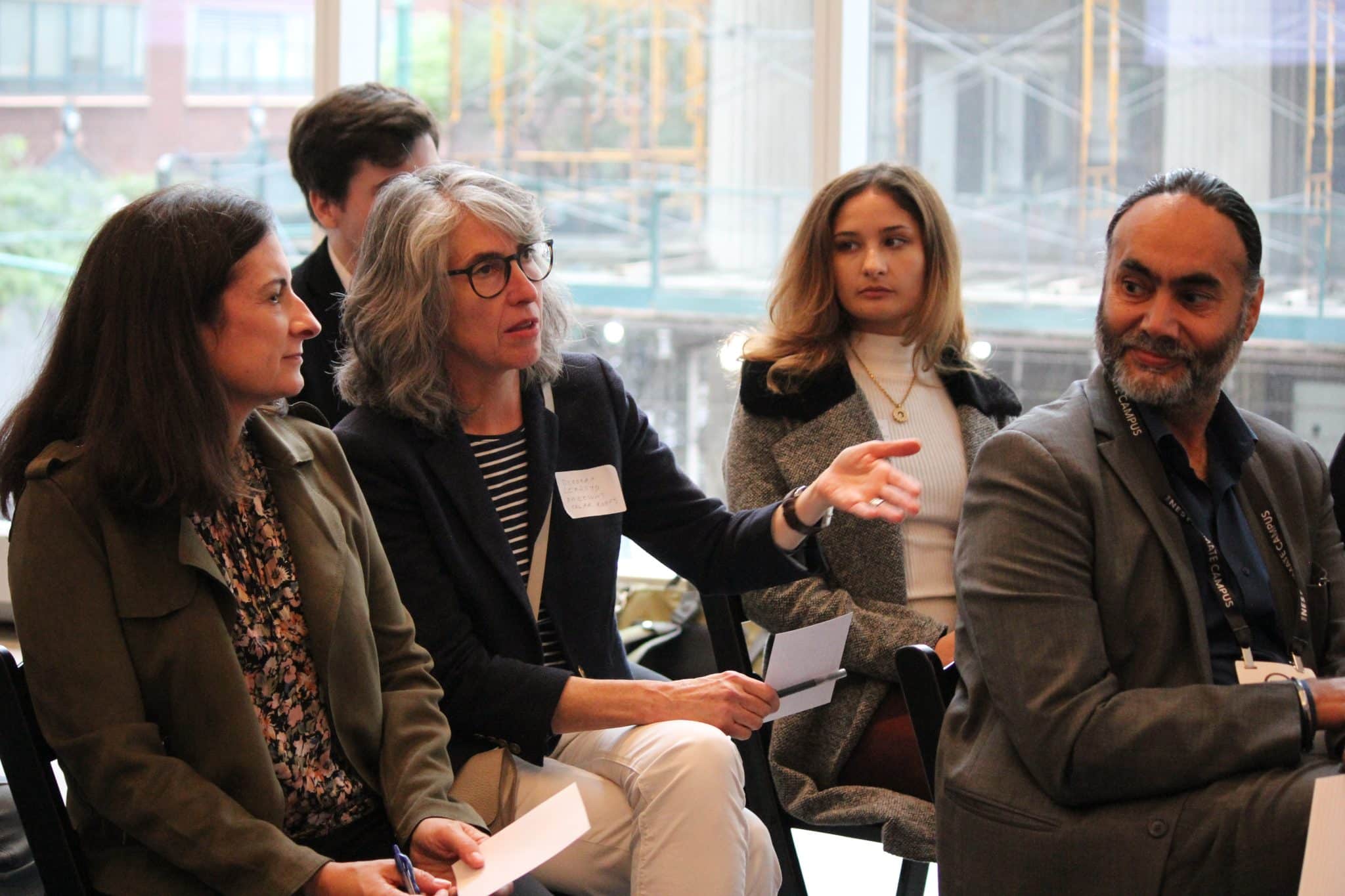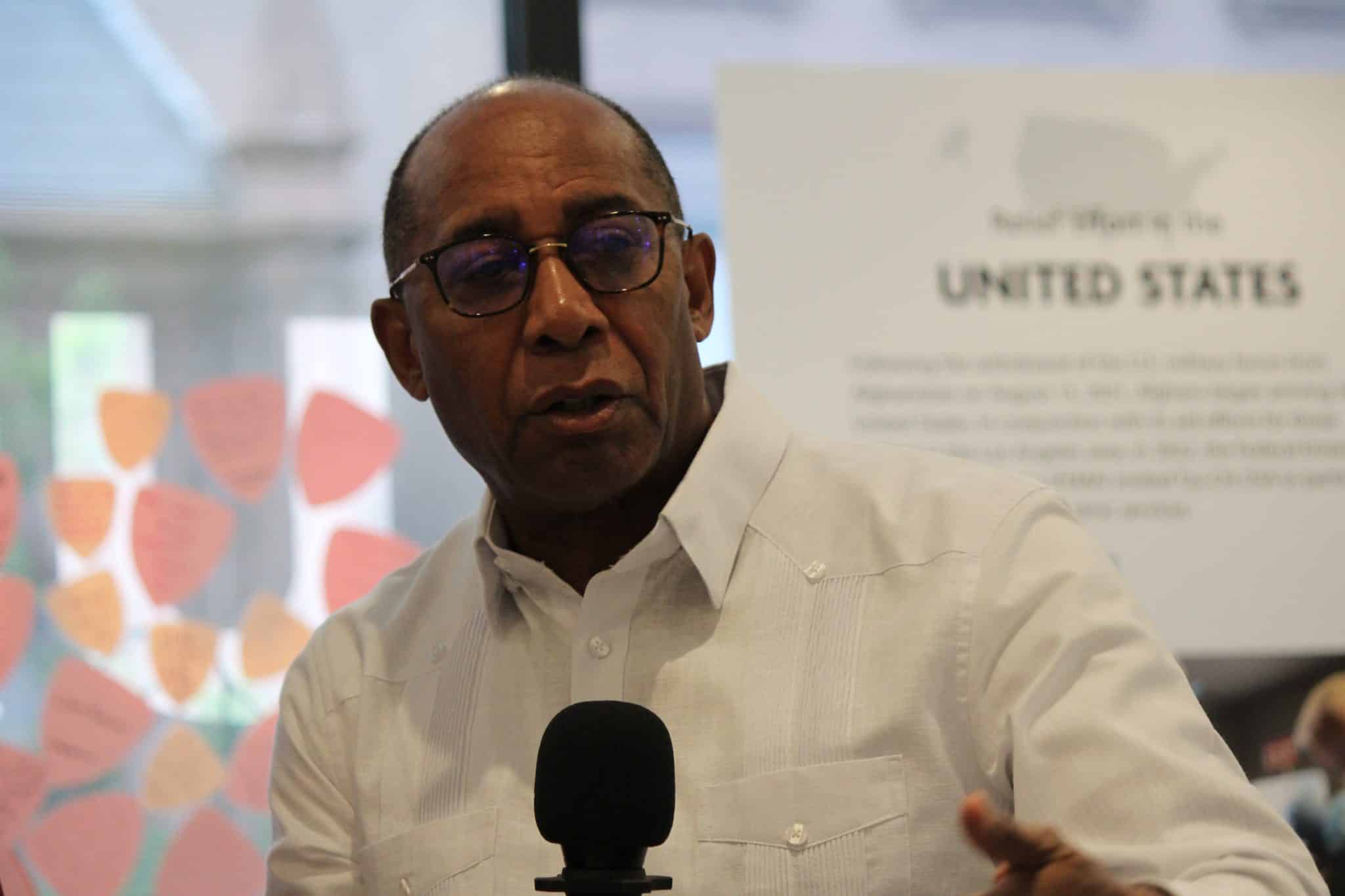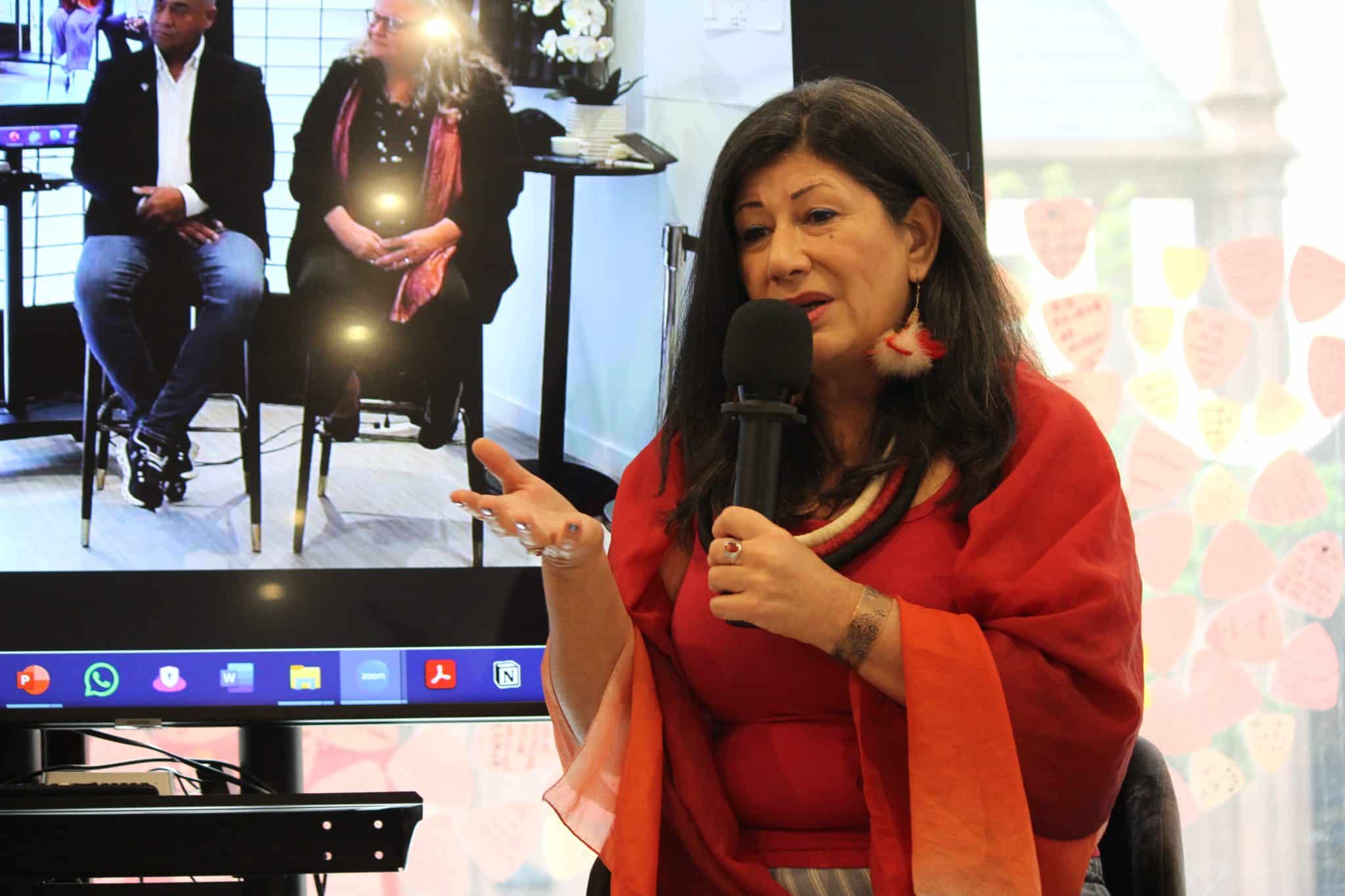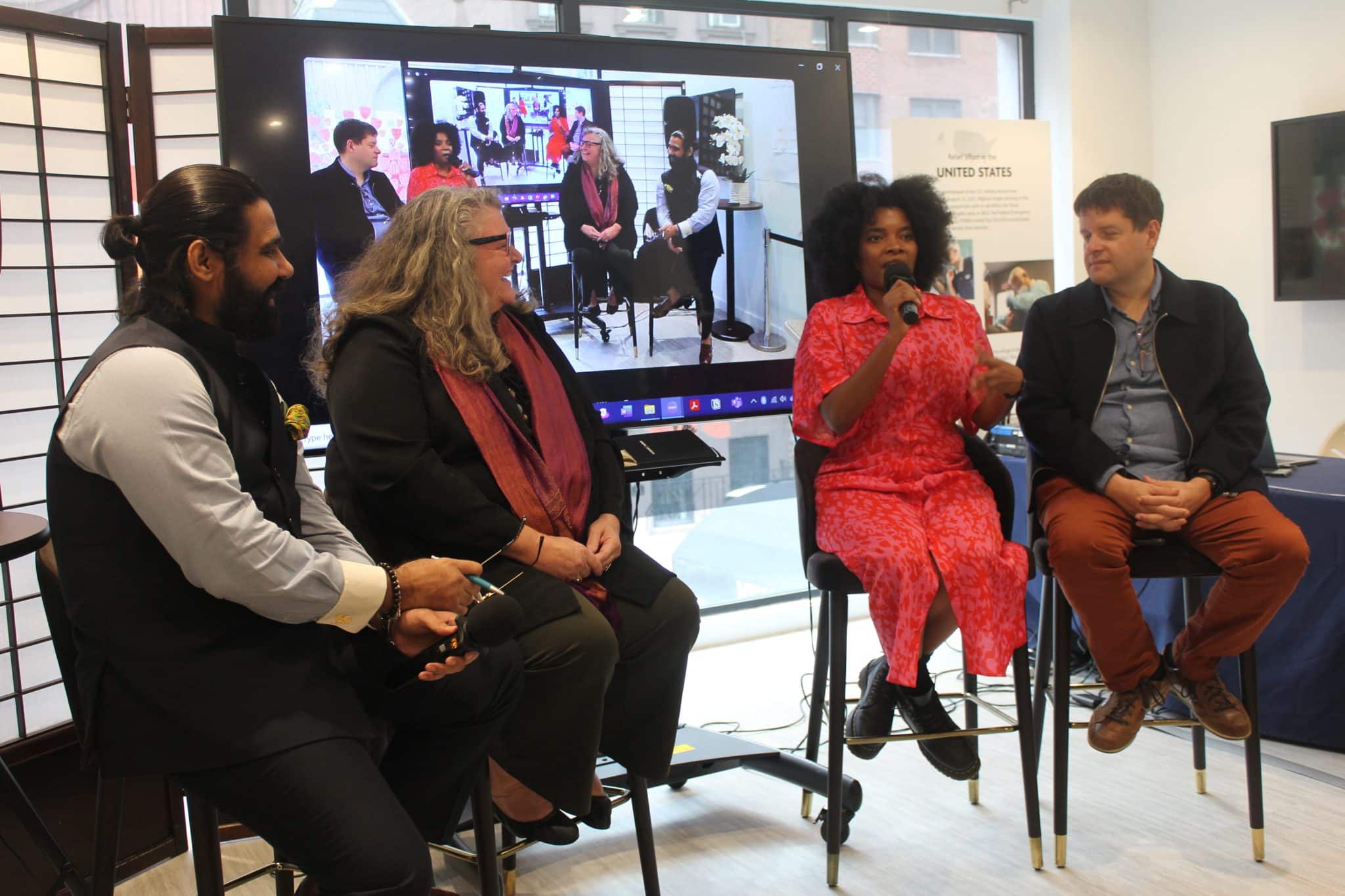Climate KIC at Climate Week NYC 2024

Climate KIC is in New York for Climate Week 2024. We have curated an exciting series of events with our partners at the Systemic Climate Action Collaborative.
We will explore: How can we create meaningful storytelling and narratives that build hope and inspire action? What new forms of collaboration can help us accelerate and scale climate action? How do we unlock large-scale investments in climate adaptation and resilience? What does it take to support holistic and systemic approaches to landscapes, land use, regenerative agriculture, and forestry? We’ll also be addressing the climate finance gap and discussing the importance of decolonising digital information.
We are regularly publishing updates from our delegation on the ground on this page.
Click here to find our full programme
Saturday, September 21st
Today, world leaders adopted a Pact for the Future at the UN Global Assembly in New York. The Pact covers a broad range of issues including peace and security, sustainable development, climate change, digital cooperation, human rights, gender, youth and future generations, and the transformation of global governance.
The Pact should ensure that international institutions can deliver in the face of a world that has changed dramatically since they were created. UN Secretary General Antonio Guterres said: “We cannot create a future fit for our grandchildren with a system built by our grandparents.”
Its deliverables include:
- The first multilateral recommitment to nuclear disarmament in more than a decade, with a clear commitment to the goal of totally eliminating nuclear weapons.
- An agreement on the need to reform the international financial architecture so that it better represents and serves developing countries.
- A commitment to improve how the world measures human progress, going beyond GDP to capturing human and planetary wellbeing and sustainability.
- A comprehensive global framework for digital cooperation and AI governance.
- A Declaration on Future Generations, with concrete steps to consider future generations in decision-making, including a possible envoy for future generations.
- A clear call on the need to protect human rights defenders.
Climate KIC welcomes the adoption of the Pact for the Future.
Kirsten Dunlop say: “The Pact for the Future is a critical step forward in building a sense of planetary consciousness and shared destiny. The fact that Heads of State have agreed to commitments on 56 actions, covering a variety of topics such as nuclear disarmament, the reform of the international financial architecture and the role of future generations in global decision making, demonstrates a willingness to embrace both the necessary listening and recognition of the need for urgent, transformative and collective action. Reaching this agreement was by no means guaranteed, and it is something to build with.
Now, significant challenges remain in turning these principles into concrete actions. To paraphrase UN Secretary-General António Guterres, countries must now move into implementation at an accelerated pace. To this end, Climate KIC will continue to work closely with cities, regions, and countries to enable them to translate their climate and nature commitments into effective action through systemic approaches to innovation, helping them to build a just, climate-resilient future for their communities.”
Sunday, September 22nd
Today marked the opening of Climate Week New York, organised by the Climate Group. The theme for this year is simple: It’s Time. While much of the conversation echoed the messages we’ve heard in the past, a few key insights stood out.
- Susana Muhamad, Colombia’s Minister of Environment and Sustainable Development, said that restoring nature should be a core pillar of climate action. She called for an international coalition to “make peace with nature,” a movement she hopes will gain momentum at COP16—the biodiversity conference happening this October in Cali, Colombia, where a delegation of Climate KIC experts will be present.
- Kamal Kishore, UN Special Representative for Disaster Risk Reduction, pointed out the lack of investment in risk prevention. Funding in that area could save lives, reduce environmental damage and future costs. Kishore also talked about the difficulty of building a resilient infrastructure for the next 100 years, given the uncertainties of future climate risks, a theme that is at the heart of Climate KIC-led programme, Pathways2Resilience.
- Luc Triangle, Secretary General of the International Trade Union Confederation (ITUC), pointed out that informing and consulting the public on climate policies isn’t enough. As countries are expected to renew their Nationally Determined Contributions (NDCs) in 2025, he said people need to feel ownership of the NDCs. For him, this means involving communities, workers, and marginalised groups in the decision-making process, something we’ve been working on in our Deep Demonstration programmes, for instance in Ireland, where we are placing farmers and families at the centre of the transition, to demonstrate what healthy, just and regenerative societies can look like.
Monday, September 23rd
On September 23rd, we partnered with Futerra for a panel discussion on the power of stories of hope and possibility. We invited H.E. Agnes Mary Chimbiri-Molande, Atossa Soltani, Veena Balakrishnan, and Csaba Manyai to share their experiences of bringing a positive angle to climate stories and how it helps mobilise action. Futerra’s CEO, Lucy Shea, talked about the importance of promoting role models and developing character-driven stories that inspire agency in people.
Dr. Agnes Chimbiri-Molande, the Permanent Representative of the Republic of Malawi to the United Nations explained that when negotiations get stalled, participants often revert to storytelling, sharing narratives about the future of their children and grandchildren. This, she said, is what helps negotiators begin to truly listen to one another. What matters, she says, is to address cultural issues, as people express themselves through cultural practices, and this needs to inform the agreements made between countries.
Atossa Soltani, from the Amazon sacred Headwaters Initiative, said that we are now at a point where we have to reimagine what is possible. “Looking into the past, we often think we have to solve these problems through intellect,” she says. Instead, she suggests that we should look to nature, which already functions in a complex ecosystem of interdependency. She adds: “We need to learn from these natural systems and explore how we can borrow and adapt these lessons to solve the challenges we face.”
For Veena Balakrishnan, one of the co-Founders of the Youth Negotiators Academy, the climate crisis is a crisis of leadership. One of her organisation’s goals is to bring back trust in multilateral processes and systems, and to give young people the skills and tools to understand and participate in those processes. She stated, “Young people have been asking for a seat at the table, but there is no mechanism or bridge to bring them inside. We wanted to address this systemic lack of representation.”
Stay tuned as we’ll soon release an interview with Veena Balakrishnan on the How Could We? podcast.
The recording of the session is coming up on Futerra’s YouTube channel. We will be updating this blogpost soon.
Tuesday, September 24th
Today, Climate KIC CEO, Kirsten Dunlop, facilitated an event organised by the Systemic Climate Action Collaborative, an initiative uniting 15 diverse partners (B-Team, Metabolic, Climate KIC, Club of Rome, Pyxera Global, etc.) who decided to stop competing for funding and instead work together to overcome climate inaction and fragmentation. The event, titled Action greater than the sum of the parts: Systems change collaboration, provided thoughtful discussions and insights on how a new form of collaboration can emerge to solve the most pressing challenges of our time.
We heard from the leader of the Amazon Secret Headwater on indigenous perspective of nature and of capitalism. Fred Tsao of Tsao Pao Chee Group talked about individual consciousness and collective consciousness and how businesses should accept the responsibility to reverse the damage on climate that capitalistic exploitation had done on climate change, planet, and people. He also talked about how businesses should find new approach to gain profit while taking care of people, planet, and prosperity. Fred offers an Asian perspective, bringing in the concept from I-Ching. The way of life comes from nature. Vincent Peribonne of OceanX reflected on his career of being a neuroscientists and later ocean researcher that climate change is not an incurable decease but a problem we have the solution for. The problem is not the solution but people.
The Climate-KIC team also participated in the launch of the Resilience Finance Taskforce for Resilient Cities, an initiative launched by Resilient Cities Network and supported by Climate KIC that aims to bring together a network of cities practitioners, funders, and stakeholders to scale-up resilience finance. We heard from Cape Town, a city that spent 12 years in building a solid and long-term strategy-led portfolio strategy particularly centred on building resilience for the cities and its communities. The city is now implementing each of the axes of the programme, starting with the most urgent ones.
Recognising the challenge at stake, and the difficulties to finance certain elements of the portfolio that sound less profitable and attractive for the funders, the Taskforce will create the tools and framework, design the pathways to unlock finance, work on multi-level governance guidance, and work on how to find the additional finance necessary to implement the portfolios.
Wednesday, September 25th
Today, Climate KIC in partnership with the Systemic Climate Action Collaborative hosted a series of panels focusing on the power of collaboration in addressing climate challenges.
In the first session, Neil Walmsley, Head of International Markets at Climate KIC, highlighted the growing need for innovative solutions in the global adaptation economy.
Eleni Myrivili, Global Chief Heat Officer at UN-Habitat and Board Member of the EU Climate Adaptation Mission, started by talking about the increasing urgency of heat-related issues and the need for systemic responses. Matt Anderson, CEO of Cryogenx, said that while there was an increase in awareness of heat-related illnesses, such as heat stress and heat stroke, there was still a significant gap in understanding the data that can drive effective prevention and treatment.
Renate Bleich of Munich Re Foundation talked about the role of insurance in reducing the financial, operational, or investment risks associated with implementing climate adaptation projects. She called for more inclusive insurance models and noted the importance of building collaborative, systemic approaches to involve all stakeholders.

At the “Faster, Further and More Fairly” panel, we discussed how systemic approaches can accelerate urban transformation to address climate challenges. Moderated by Sandrine Dixson-Declève, Co-President of the Club of Rome, the panel explored the intersection of democracy, storytelling, and innovation in climate action.
Anthony Zacharewski, President of Democratic Society, talked about the importance of engaging communities in climate projects. He referenced a G20 survey showing that 60-80% of people recognise climate change as the biggest crisis and stressed the role of participatory democracy in driving progress in the implementation of climate solutions for urban transformation. “If we don’t tackle this issue as a collaborative, we’re bound to fail,” he concluded.
Lucy Shea, Group CEO of Futerra, talked about the role of storytelling in shaping public perception. “The climate story is deeply anxiety-inducing”. What is needed, she explains, is positive, empowering narratives that can inspire change. People, she added, are far more likely to believe information presented in story form than as mere facts.
Kirsten Dunlop, CEO of Climate-KIC, pointed out that “cities concentrate risks and our capacity to imagine.” She talked about the role of urban areas in driving innovation, a topic she developed in an recent episode of How Could We? podcast.
Speakers also called for a democratic infrastructure that facilitates knowledge exchange, transcending traditional concerns of citizenship and democracy.
On the next session: “Scaling Climate Solutions Through Landscape and Bioregional Regeneration” speakers specifically talked about the need for collaboration, indigenous leadership, intentional financing, and building strong market links to achieve meaningful landscape regeneration. They mentioned examples of global and local initiatives focused on landscape and bioregional regeneration through integrated landscape management (ILM) and regenerative agriculture and talked about how to scale these practices through landscape partnerships.
Mahmood Sonday of REOS Partners started by reminding the audience that indigenous people are the primary Guardians of the planet. “The approach we take needs to be indigenous-led.”
Erik Bruun-Bindslev pointed out that many food industry companies are beginning to realise their role in soil degradation. He said: They are now realising that their time is up.”
Seth Shames, Managing Director of EcoAgriculture Partners, talked about the importance of guiding financial investments into regenerative landscapes.
Sara Scherr, President of EcoAgriculture Partners, introduced the “1000 Landscapes for 1 Billion People” initiative, which focuses on driving landscape partnerships and mobilising finance for regenerative projects.

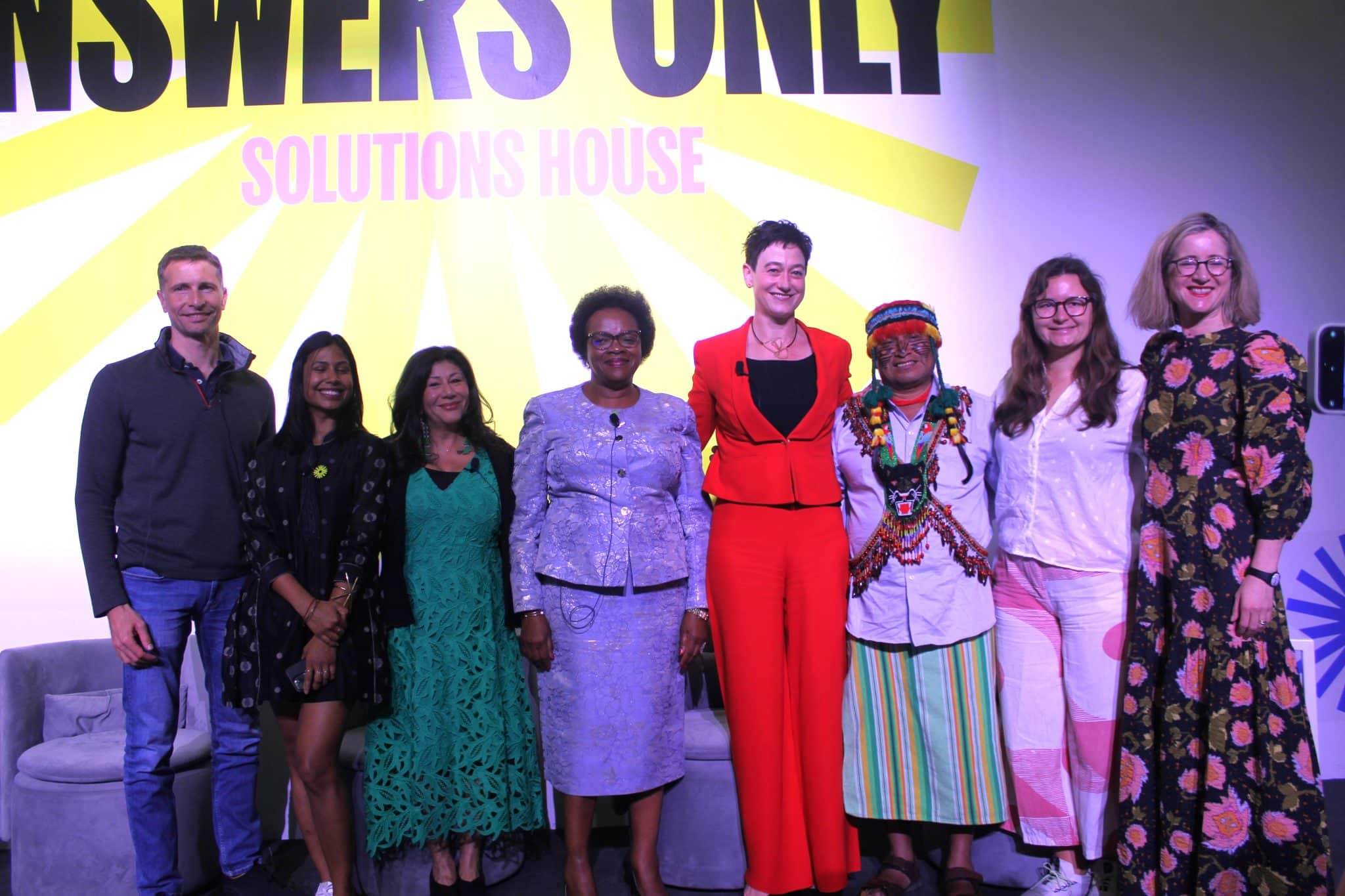
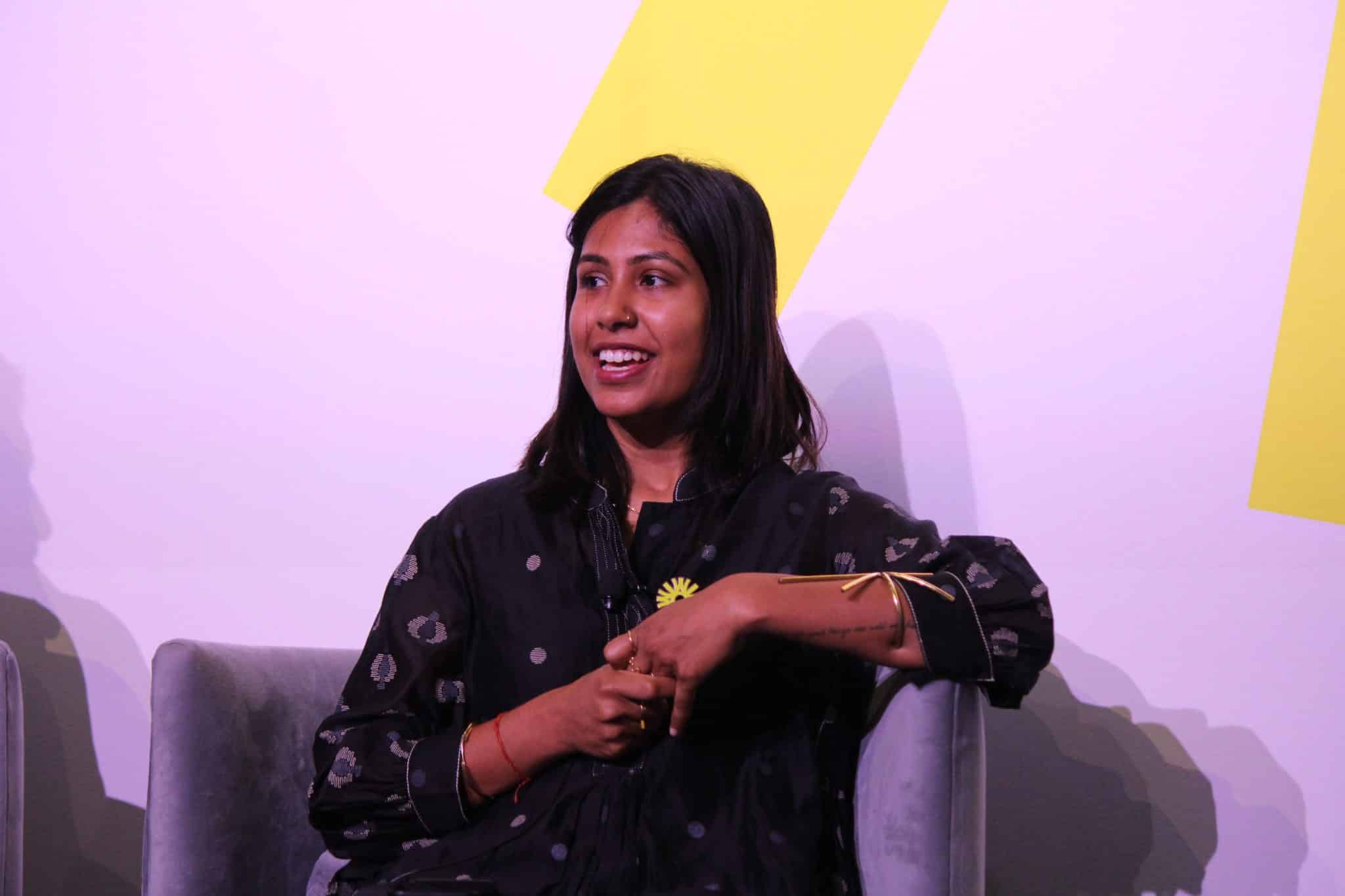
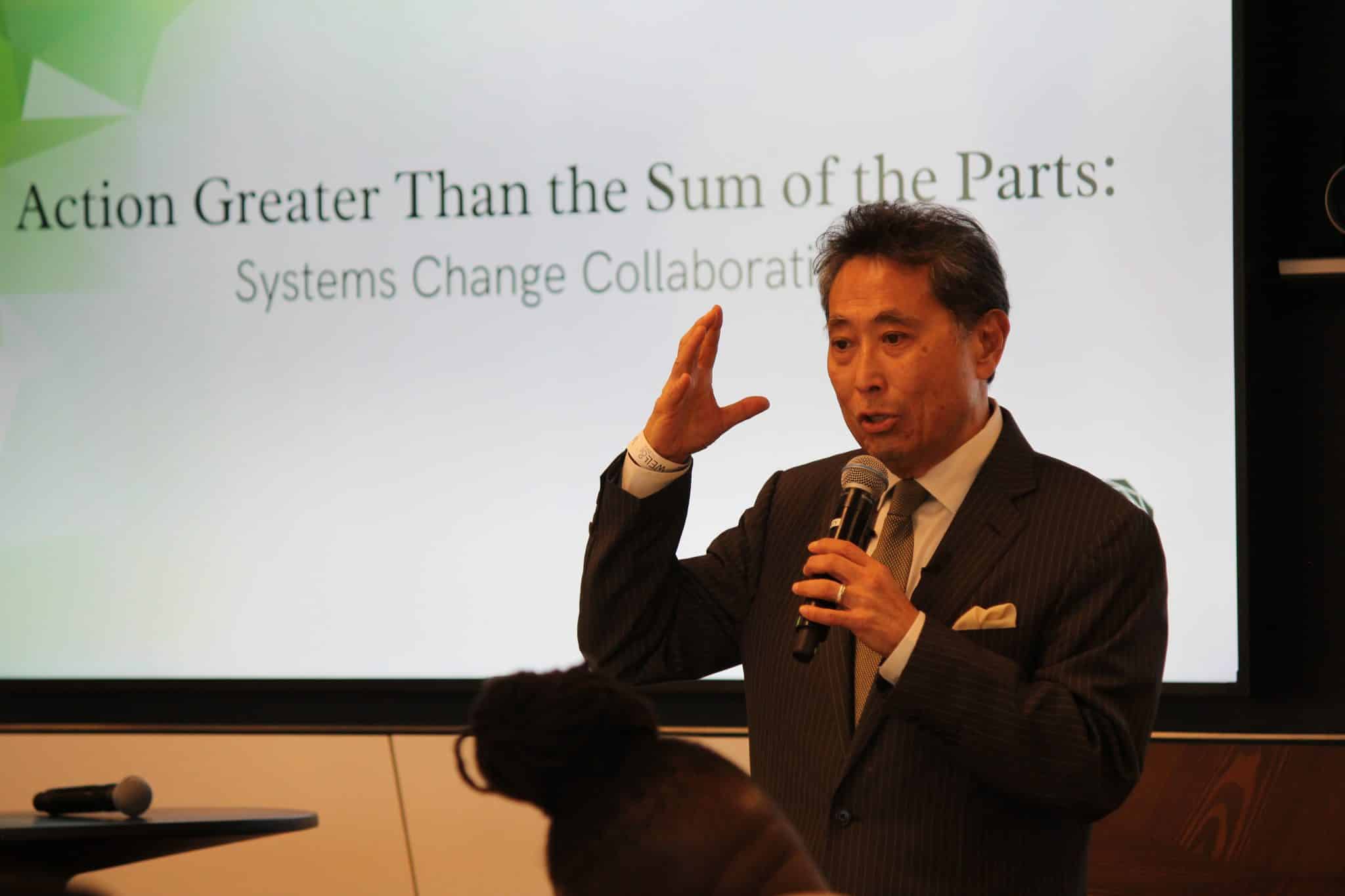
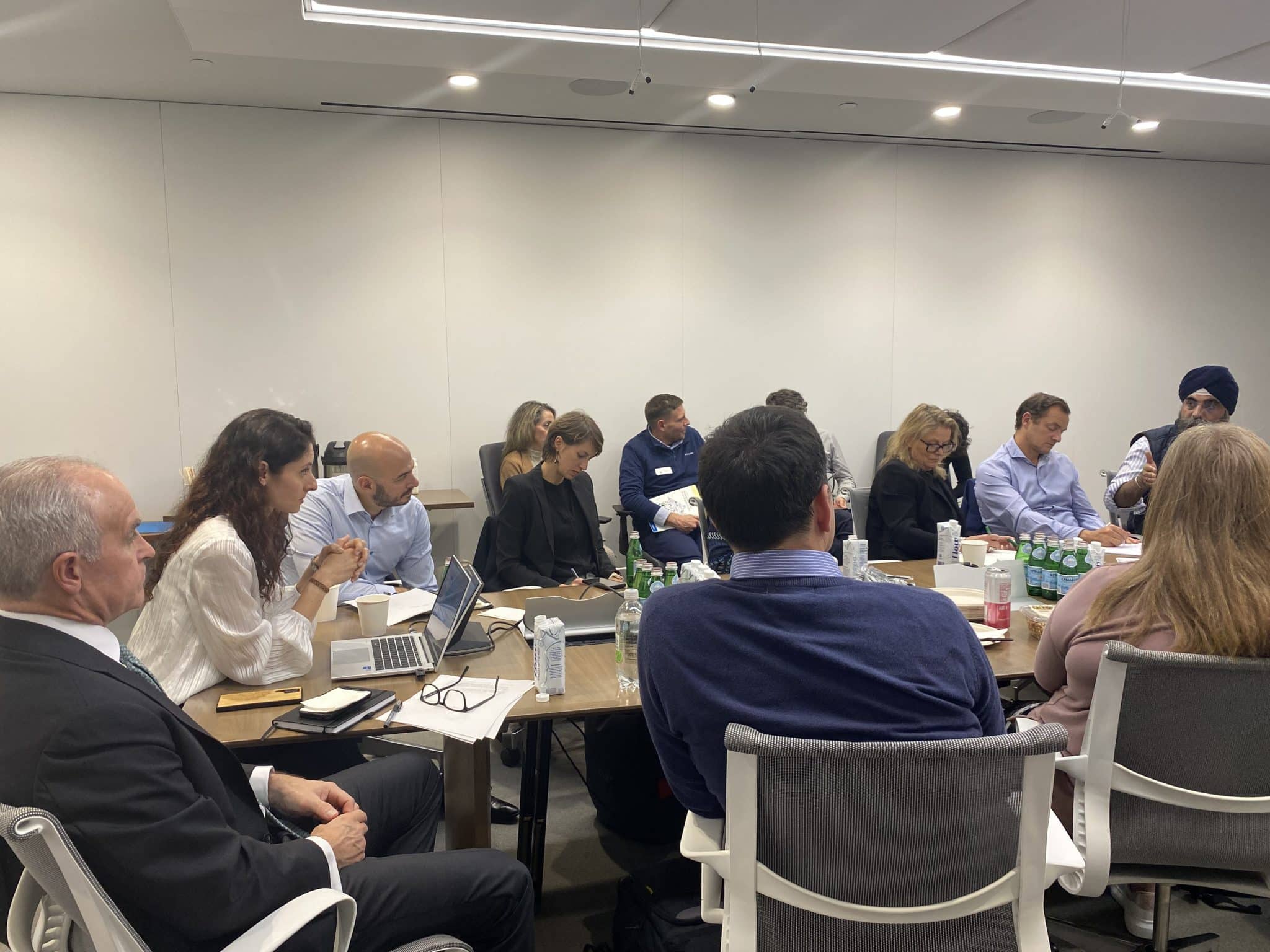

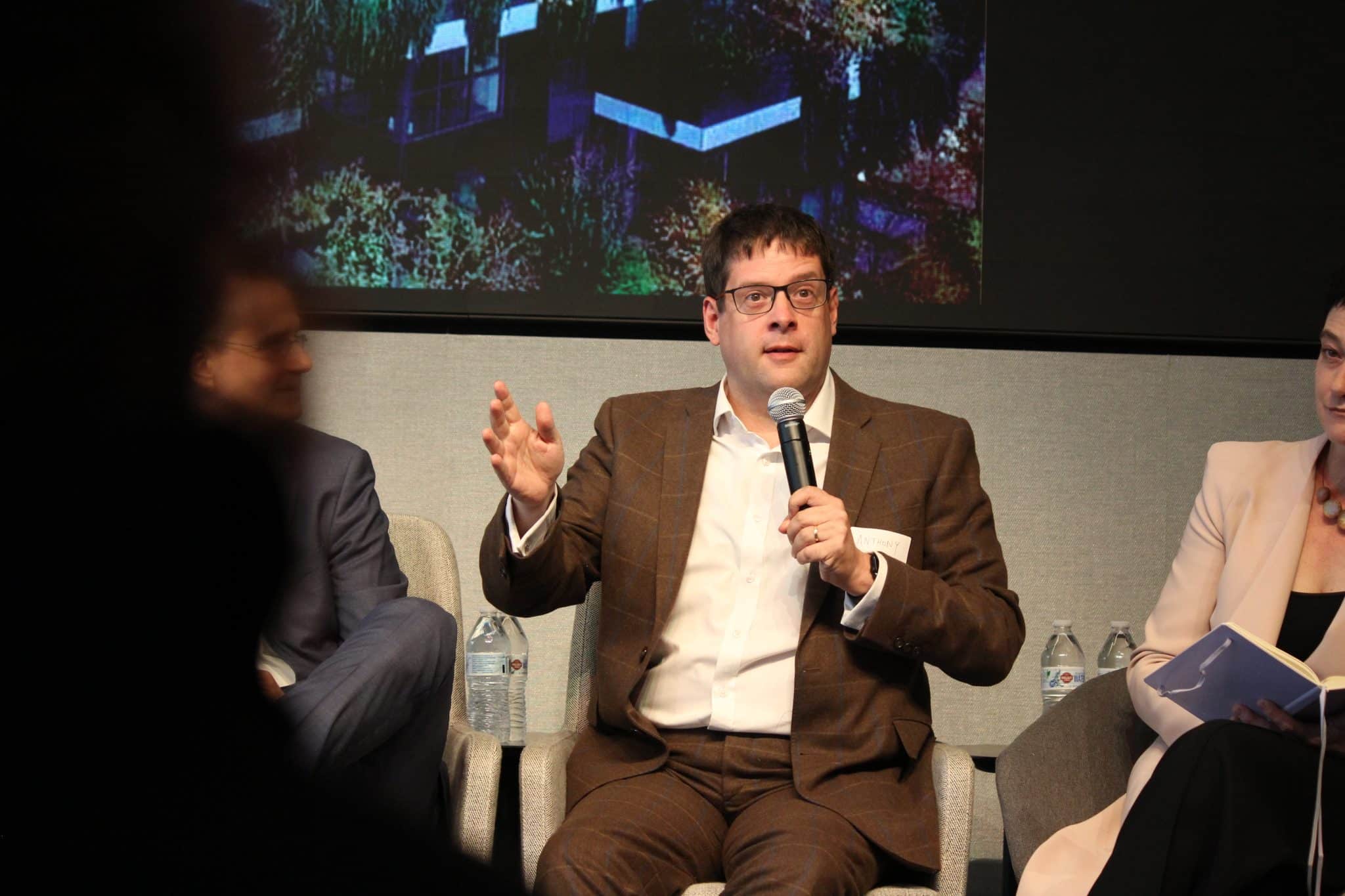
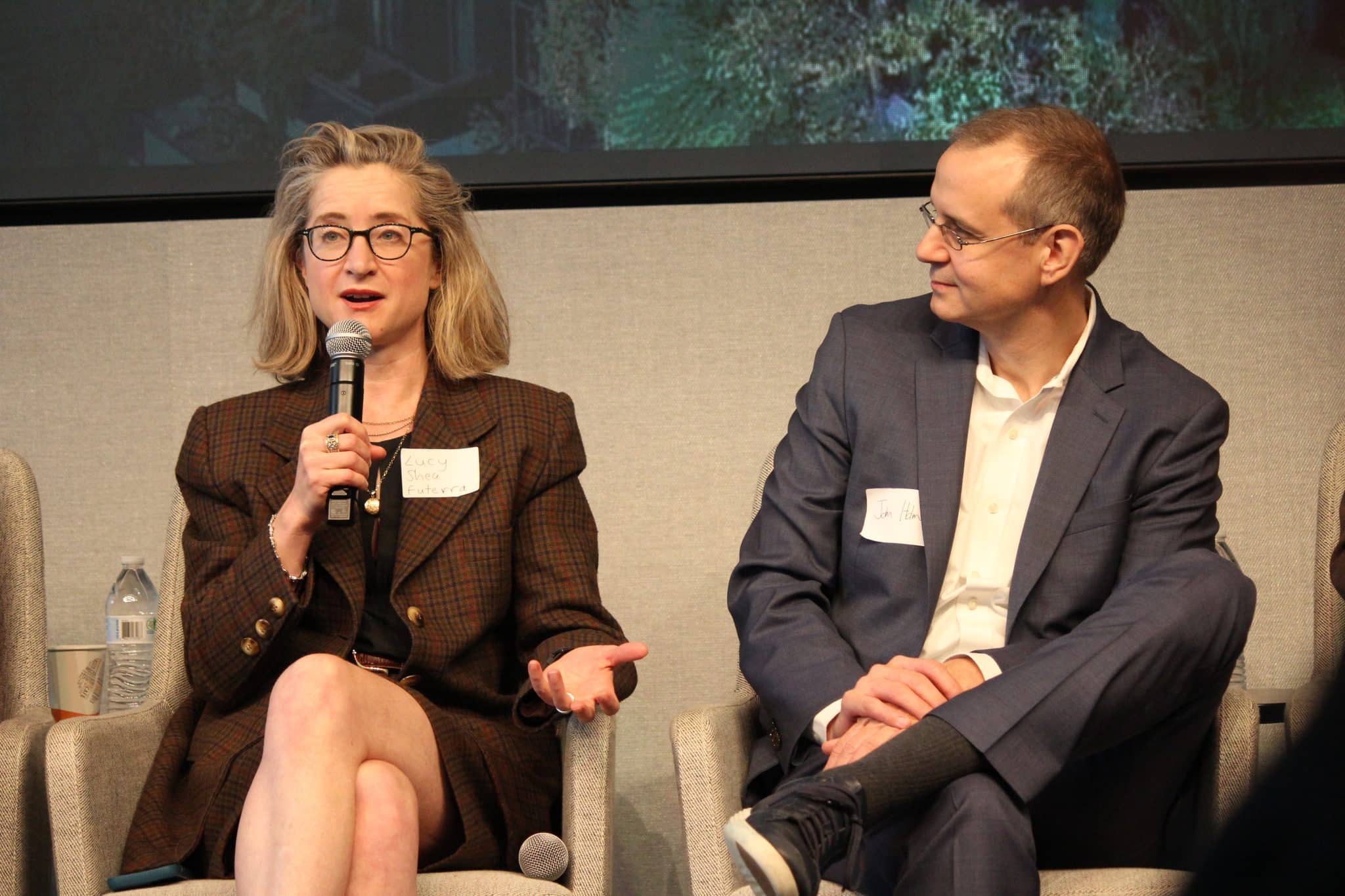
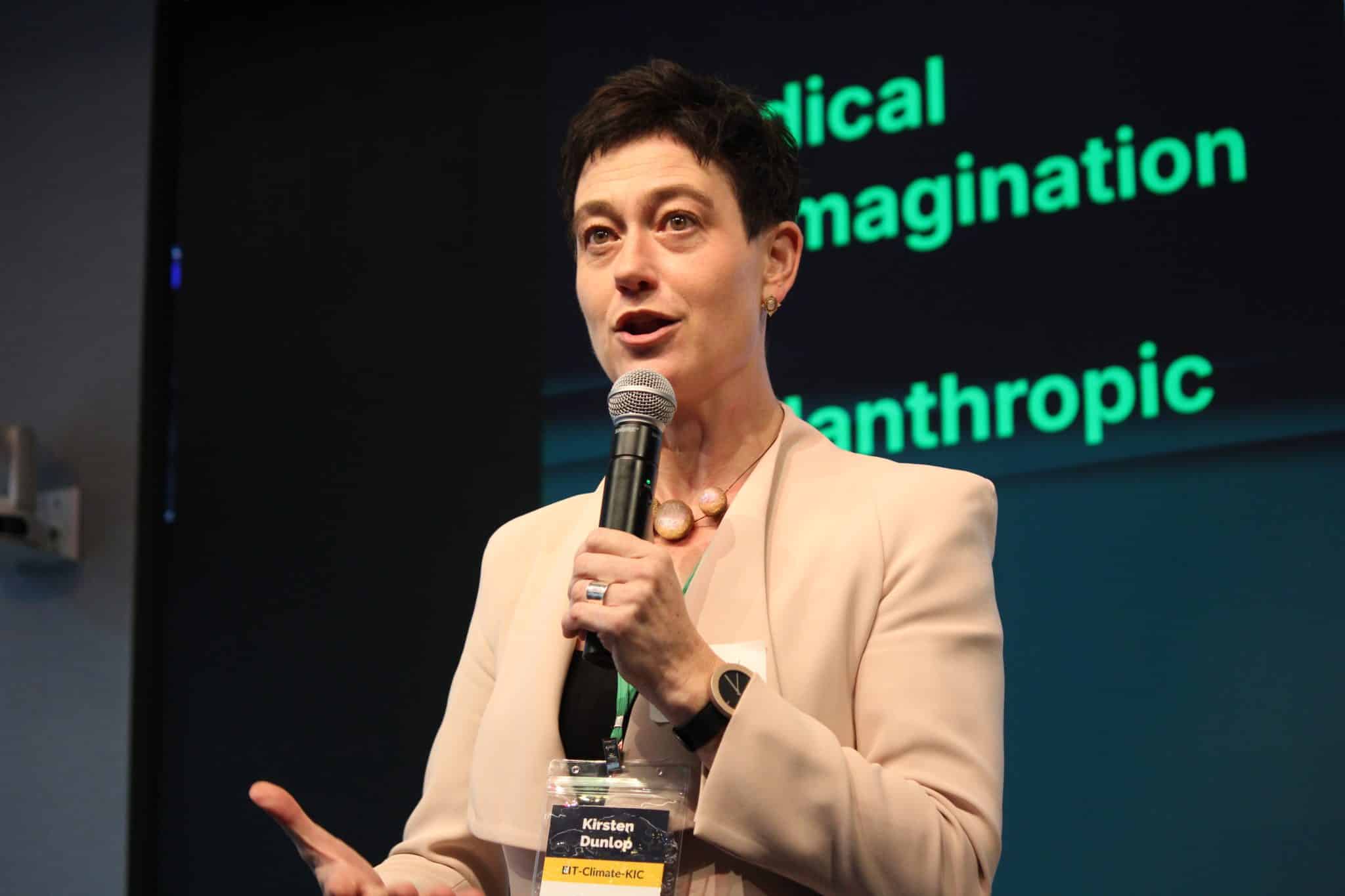
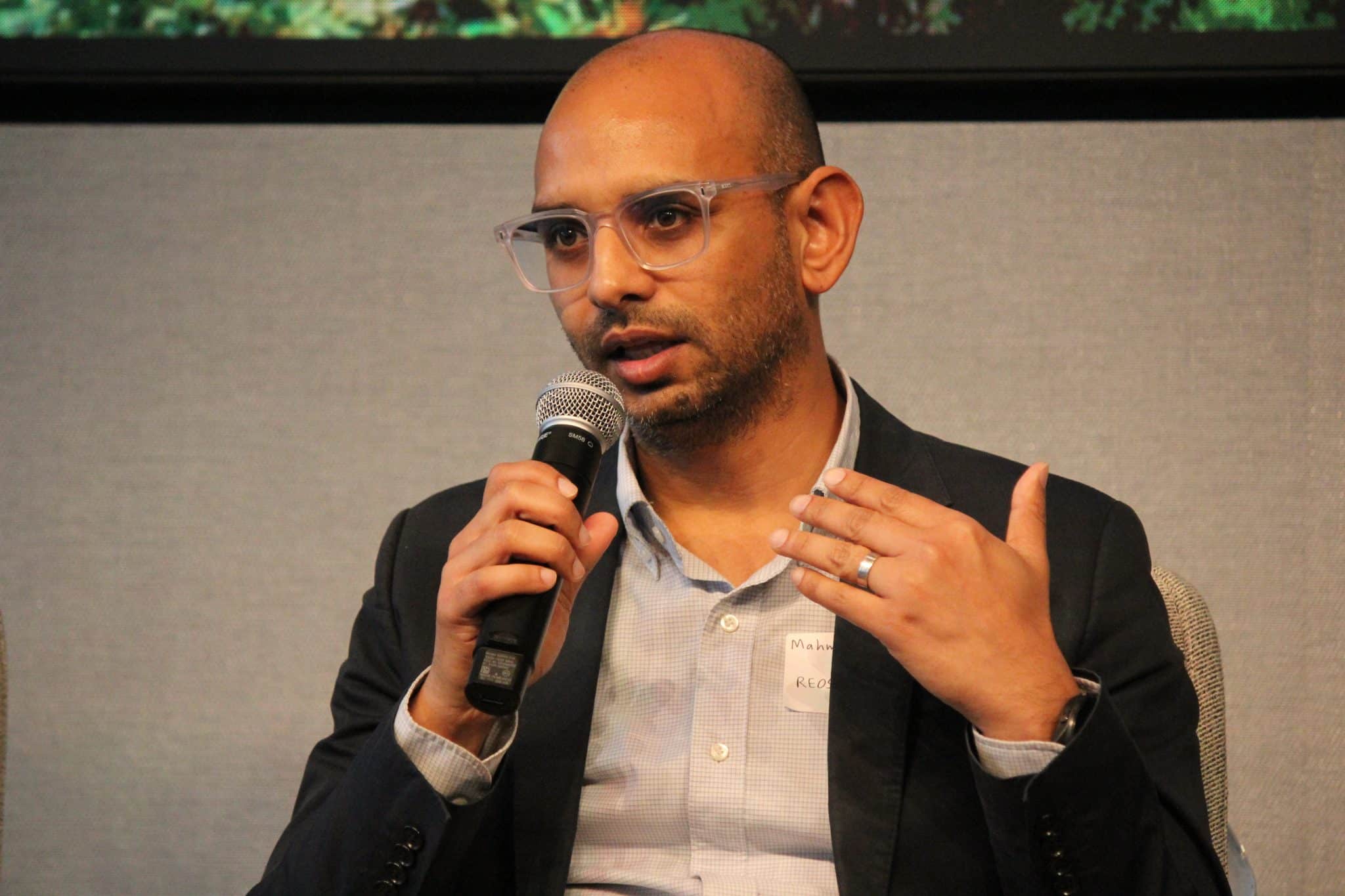


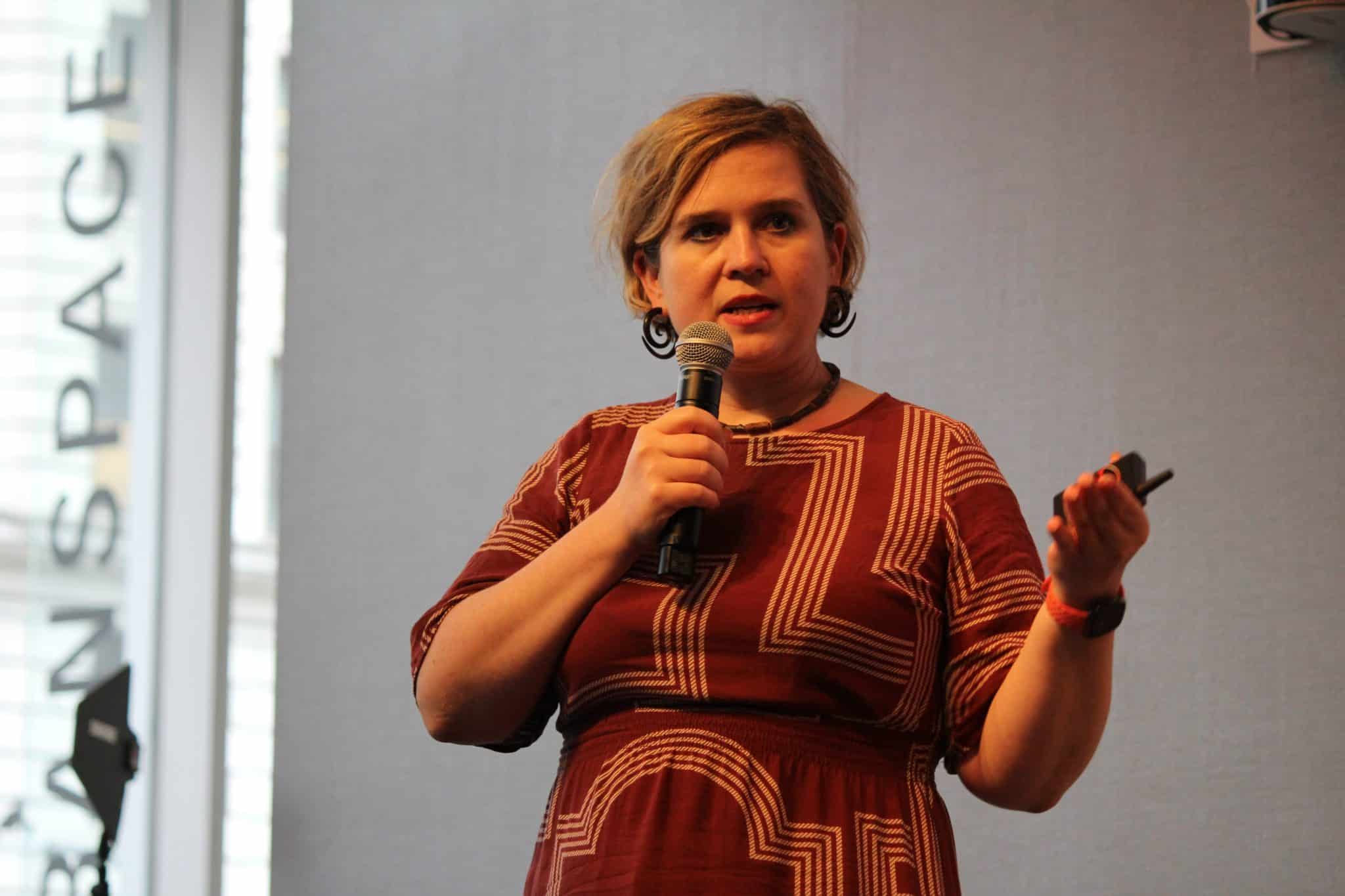
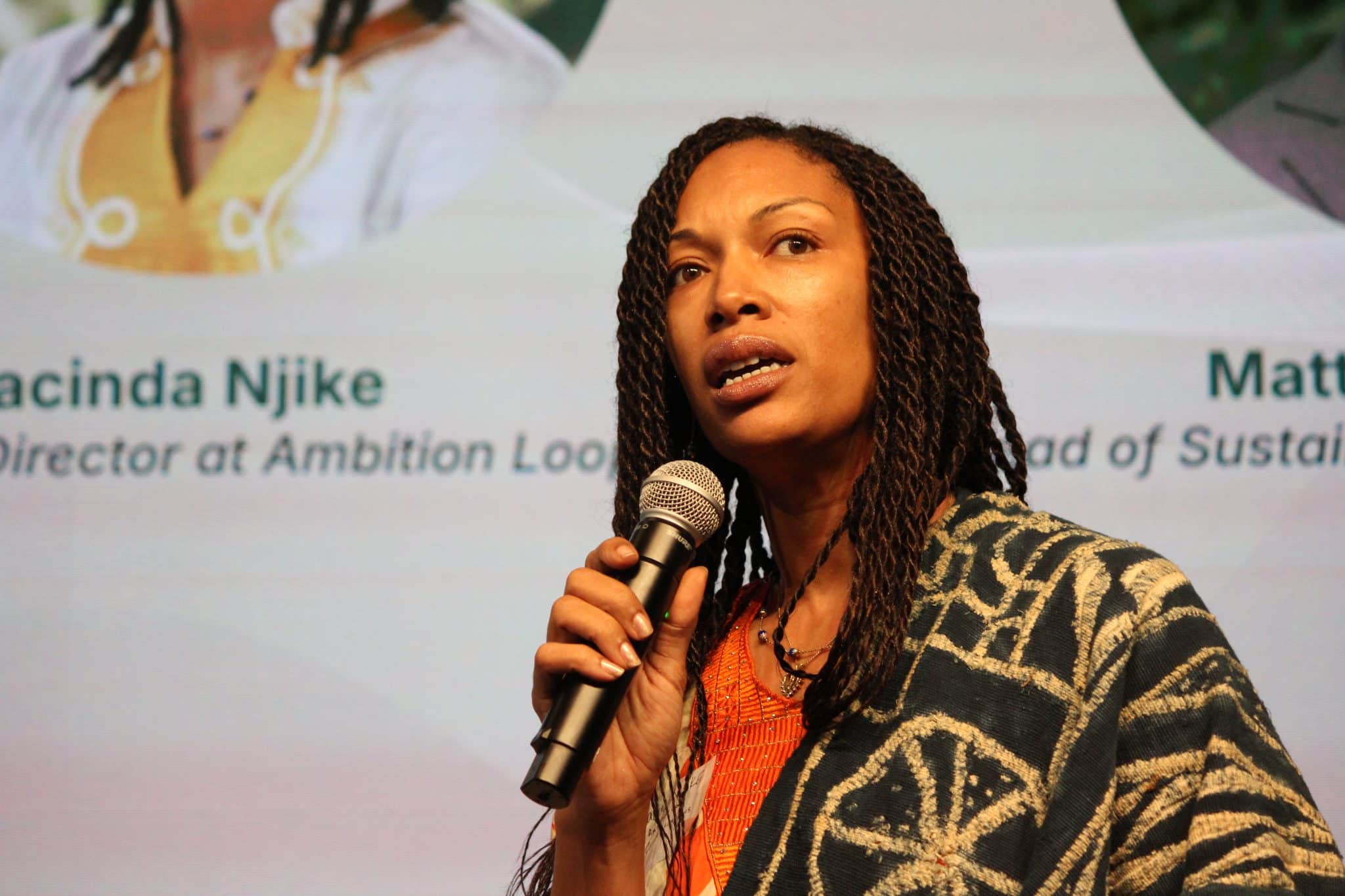 Attendees were then invited to share their own initiatives and participated in collaborative group discussions, focusing on concrete solutions to close the climate finance gap and accelerate global decarbonisation efforts.
Attendees were then invited to share their own initiatives and participated in collaborative group discussions, focusing on concrete solutions to close the climate finance gap and accelerate global decarbonisation efforts.